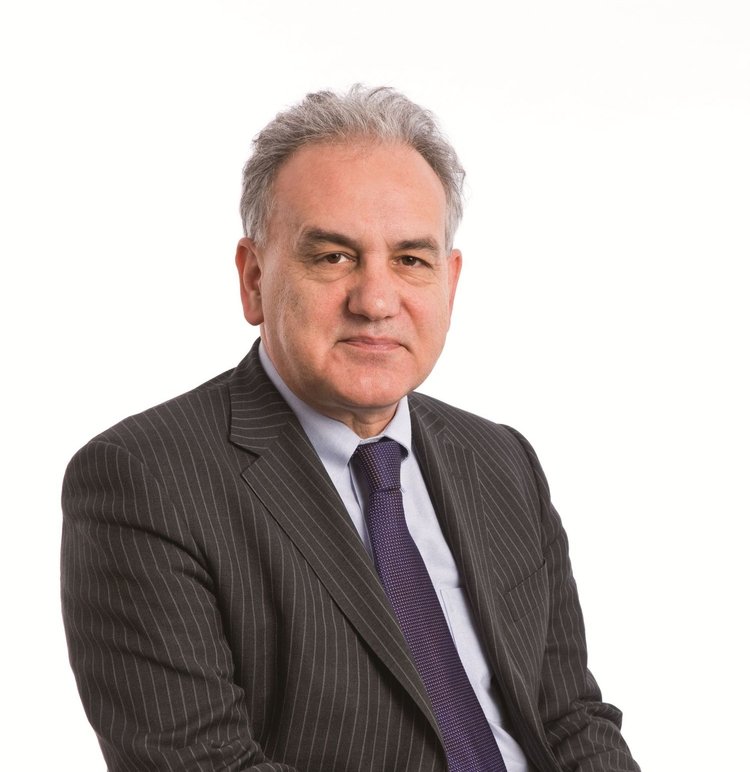Neal Stone talks to Health and Safety Week
 This year’s Health & Safety Week is focusing on occupational health. The team spoke to Neal Stone, acting chief executive of the British Safety Council, about the challenges the industry is facing and how occupational health can be made more prominent. Here’s a preview of the interview:
This year’s Health & Safety Week is focusing on occupational health. The team spoke to Neal Stone, acting chief executive of the British Safety Council, about the challenges the industry is facing and how occupational health can be made more prominent. Here’s a preview of the interview:
1. This year, Health and Safety Week is promoting occupational health. What are the main challenges that the industry is facing in occupational health?
For a long time, everyone in health and safety used to use the annual fatal injury statistics as the main metric of health and safety performance in Great Britain. The reality is that you have to look far more widely; fatal injuries are very serious and tragic in their consequences, but they pale into insignificance when you think about the number of people still dying as a result of occupational disease in Great Britain every year.
The legacy of people having to work with materials like asbestos and silica will be with us for a long time. I applaud the Health and Safety Executive (HSE) for their recent campaign on asbestos, and we mustn’t lose sight of issues like this. Occupational health is not just about musculoskeletal disorders, stress and fitness, it’s a very big agenda and an issue that we have to tackle properly.
Read the full interview at the Health & Safety Week 2015 website.
[vc_row][vc_column width="2/3"][vc_column_text]
What makes us susceptible to burnout?
In this episode of the Safety & Health Podcast, ‘Burnout, stress and being human’, Heather Beach is joined by Stacy Thomson to discuss burnout, perfectionism and how to deal with burnout as an individual, as management and as an organisation.We provide an insight on how to tackle burnout and why mental health is such a taboo subject, particularly in the workplace.[/vc_column_text][/vc_column][vc_column width="1/3"][vc_single_image image="70883" img_size="medium" onclick="custom_link" link="https://www.shponline.co.uk/working-at-height-3/barbour-download-guide-to-working-at-height/"][/vc_column][/vc_row][vc_row][vc_column][vc_btn title="Listen now!" color="success" link="url:https%3A%2F%2Fwww.shponline.co.uk%2Fpodcasts%2Fwhat-makes-us-susceptible-to-burnout%2F|target:_blank"][/vc_column][/vc_row]
Neal Stone talks to Health and Safety Week
This year’s Health & Safety Week is focusing on occupational health. The team spoke to Neal Stone, acting chief executive
Safety & Health Practitioner
SHP - Health and Safety News, Legislation, PPE, CPD and Resources Related Topics
British Safety Council Wellbeing Conference: Empowering Employees for Success
Last call for International Safety Awards
‘Add health as the lens to your business performance’ – British Safety Council Conference 2023


Of course, safety and health are not just about one or the other nevertheless, they are intra-dependent in terms of whether you have the cart before the horse or the other way around like, you know, a push-me – pull-you conundrum as without some basic “given” level of fitness and stamina that, in and of itself is a risk factor.
However, if optimising work-related health reducing occupational stress & fatigue and thereby improving resilience are not put before the cart then safety itself become a risk factor as error rates and mishaps due to cognitive overload undermines any safety interventions designed to prevent or reduce those risks……
And, not only but also, whether physiological and/or neurological, over-exposure to insidious levels of stress will result in the development of non-communicable diseases, over time, in addition to those with a more immediate impact, so called accidents, manifesting in harm or serious injuries.